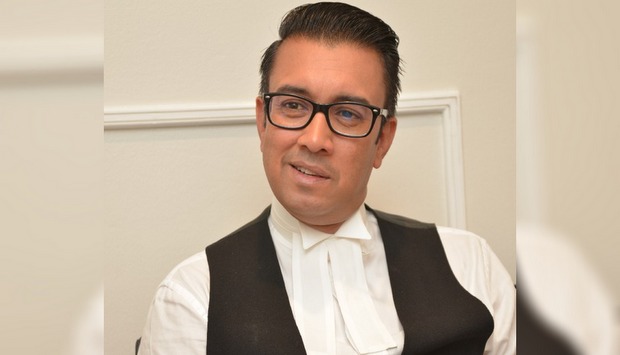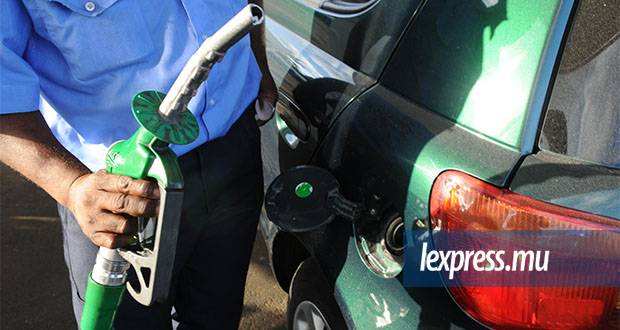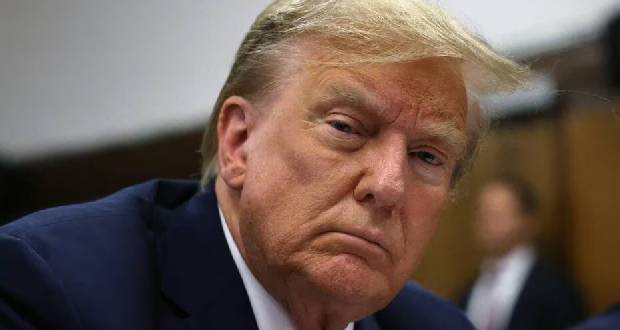Publicité
Shakeel Mohamed: “I want to put an end to the boot-licking culture”
Par
Partager cet article
Shakeel Mohamed: “I want to put an end to the boot-licking culture”


With the resumption of parliament this week, Weekly talks to Shakeel Mohamed, Labour MP, about the government’s performance both in and out of the House. It is a reflective Mohamed that shares with us his wish for an overhaul of the political system to break away from the one inherited from the British.
Parliament has resumed this week after a fairly long break. What are your impressions of this first session?
It is exactly what we all expected. The arrogance and complacency that radiates from within government ranks is worse than before. The inability of government to show the agenda of the board meeting of Air Mauritius since that agenda does not exist. The admission of guilt on the part of the deputy prime minister with regard to the lack of good governance. The resounding defeat of government in the fight against drugs. A typical day in examining the rot that has taken over our country. And the absence of the prime minister from parliament who clearly has more important issues to attend to is a big disappointment. He has already resigned. The only reason why he has not done a formal handing over is because he’s afraid of the anger of the people.
The people will be happy for as long as their bellies are full, won’t they?
Well, that’s just it! Their bellies are not full!
Inflation is low, isn’t it?
I don’t know from which hat they pull out those statistics! Look around you: have the prices of commodities gone down? No, it is more expensive to be able to eat than it was last year and the year before and the year before that. Today, it is more expensive to run your kitchen than it was a few years ago. Economists speak a different language from that of the people. They anesthetise the people with meaningless and warped figures about inflation and unemployment. People don’t care about statistics. They care about their daily livelihood, jobs and the basic necessities.
To talk about larger issues, your party has been out of power for about two years now. You’ve had a lot of time on your hands. As an opposition party, have you been able to think about the kind of policies that will take this country forward at every level or have you just been sitting there hoping that the government gets even more unpopular?
No, we have been thinking about policies that will change Mauritius and there are very difficult and daring policies that we would have to implement.
By difficult and daring, do you mean unpopular?
Yes, many would be unpopular. For example, when we go out there and say there will be no nominations and that candidates for jobs will be interviewed by a non-partisan parliamentary panel in a transparent way, we will create a lot of anger, but, if people do not understand that the practice of nominations has to stop now, we will then knowingly be killing this country.
Why should we believe that, this time, you are telling us the truth?
Unlike this government, we have never lied to the people. Look at the Labour Party 2005-2010 manifesto; we never said there would be no nominations, for example. So when we say there will no longer be, you have no reason to disbelieve us.
You had said that there would be meritocracy. Where is it?
Yes, we did and the former government did do a lot. For instance, we created the Equal Opportunities Commission and we passed the appropriate laws to ensure that meritocracy prevailed.
But, did it?
It was a good start! I practise as a lawyer before the commission and the law is there to ensure that equality and equity prevail. There is no doubt about that. Now we have to go one step further and be able to ensure that in the civil service too there is meritocracy. Promotions should be based on merit, as is the case in the private sector, not on seniority. You cannot have one arm of the country functioning in one way and the other arm, which is the public sector, applying different standards where people are judged and assessed simply on seniority. They have to be synchronised.
Throughout the parliamentary session this year, you were rather quiet. Few questions, less agitation, little anger. What is the reason behind your moving from being on the forefront to taking a backseat?
Because right now, I feel exactly what the Mauritian population must be feeling like. Just observe around you. What do you see? The people are very quiet. They are subdued. But above all, our people are sickened by the treason that this government has demonstrated towards the electorate. They have assimilated the fact that there needs to be a change in government. And they are waiting.
The people are not exactly as subdued as you say. They are very active on social media...
That's the media I am active on too and that’s the forum where revolutions begin. When there is a disconnect between the needs of the people and those governing them.
But you are paid to be active on another forum. Not just be like us...
I have criticised government on their policies. I managed to make the government backtrack on a piece of legislation which they were coming up with to sell our land to foreigners. I have been active in parliament but each and every time that I have been so, I have been met with insults from the prime minister, incredibly unparliamentary language like “shut your face” and with the speaker saying she did not hear.
Is that all it takes to shut you up?
Oh no but I cannot maintain the same tempo at all times! Right now, I have reached a level of total disgust for this government. But then again it would be wrong for me to say only for this government. I feel totally disgusted with our political system.
Why?
Because it is not bringing solutions to the real issues that the people are concerned about.
What you are saying is even if you came back to power, our problems will be the same, is it?
If we came back to power again and we continued with the same political system, it would solve nothing.
So why should we vote for you?
Because we will give a very solemn undertaking to change the whole system. Now saying that may not be to the liking of the establishment and the conservatives, because of vested interests in keeping the status quo, but we should change things for the country to leap forward.
What exactly are you going to change?
Several things but one of the main ones is accountability. Politicians make promises. For instance, Ivan Collendavelloo [minister of energy – ed note] said that water would run in our taps 24/7. At no time did he say that the price of water would go up. Right now, we don't have water in our taps 24/7 and, two years down the road, he is talking about increasing the price of such an important commodity. He has to be answerable, not only in parliament where he mocks the questions that we put, but also to the country as a whole because he deceived the population.
But hasn't our history been such that every five years we go and voluntarily elect our own dictators?
That’s why I am suggesting the possibility of a referendum to allow the people of this country to pronounce themselves on the inability of government ministers to implement electoral promises and to make them accountable to the people. We should be intelligent and mature enough to change our system of government.
What do you suggest that we replace it with? Which country should we take as an example?
A model that suits our requirements. I am not asking to copy any country. I am asking to have a model of democracy that suits our requirements.
But what makes us so different from the rest of the human race?
We are an island state. We don't have any natural resources. We have to compete with the world at large. Geographically, we are situated in an area where we don't have rich neighbours. We have various communities from different parts of the world. We have to maintain that unity and make sure that no one feels left out and there is no a feeling of frustration. So, yes, each and every country in the world has their own unique qualities and we have unique qualities. Now in order to be able to govern this country, we need a unique system of government, different to the one brought to us by the British at the time of independence. In those days, it was good but we have evolved. Does this system of government today give us meritocracy? No, it does not. I am for a new system altogether. There should be no nominations whatsoever, be it for parastatal bodies, board members or ambassadors on the basis of their ties with the party.
Isn’t this idealistic?
It’s not idealistic. It is giving the people a reason to hope again. It is rebuilding the trust of our people in our institutions.
How will you get people to work to get you to power if they are not getting any ‘bout’ [reward] out of it? In other words, how can you put an end to the ‘bout’ culture?
I want to put an end to the boot-licking culture. We may displease some 2,000 or 3,000 people but the ones we will please in return is the difference to 1.3 million. As things stand right now, the people of this country have no hope. They know that there is no meritocracy, that you have to be related to ministers to get a job in the public service. The civil service is something which should be changed altogether. What is the point of having an Equal Opportunities Commission if it doesn’t apply to the public service? It doesn’t make sense!
Weren’t you happy working with this system?
Yes, I formed part of government before and yes, I worked through the system and I am of the view that we are obliged and duty-bound to cleanse it. It is only then that you will be able to provide solutions to the requirements of the youth. The youth say “why is it that when I graduate from university, I do not get the job I’m qualified for?” It’s very simple. The reason is that the government system is asleep.
Why didn’t you wake it up when you were in government?
To be honest with you, we had a specific programme to work on in those days. We implemented a lot of what we said we would do. There was development. There was job creation. Unemployment really went down. People lived better. There was a better feeling in those days when we were in power. We should have changed things such as the system. We did not. We learn from our mistakes and we should not repeat those mistakes.
If people lived better, why were you voted out?
People were not happy with the second republic. They were totally against it. They did not accept certain issues which were raised by government. Also, let’s look at Donald Trump. That is a good example for Mauritius. Look at what he has done. He has identified that there is a Middle America. That Middle America is not happy with what Obama has done. Trump identified that this Middle America felt left out. He identified that people, a lot of people in America, had this fear of the Islamists, of migrants and of job losses. So what did he do? He capitalised on that. That is also what Lepep did. They obviously tried to make people forget what this government did well, that they themselves at one point in time were in government with us. Xavier-Luc Duval happened to have been in government with us 7/8 of the time. This was put aside. What they concentrated on was the relationship between the former prime minister and some lady, that the former prime minister had a private jet, which has been found to be a lie, that the former prime minister and government stole public money, which was untrue and no public court has established that. They invented charges even after the electoral campaign against Dr. Navin Ramgoolam, one after the other. They even accused him of having had someone murdered while he was in police custody. It’s easy to do politics on lies, feeding on the fear of people and on their frustration. They acquired political supremacy through lies. Once they won, they had no idea what to do. That is why I am totally disgusted with their way of doing politics and of our system of government. That is also why the people have lost faith in politicians. We should change that. I’m an idealist. And the problem is that, when the politician is no longer an idealist, then the people stop believing.
It’s very easy to be an idealist when you’re in the opposition, isn’t it?
It is from the being in opposition that we will rebuild our country. It is a necessary path.
Well, where were these ideas when you were minister?
They were there. I’ll give you one example. When I came to the Ministry of Labour, I introduced employment protection, for instance. That was one of the ideas. We cannot have employers abusing and firing employees on the false pretense of economic hardship. I implemented an employment protection division out of my idealism and it is more difficult now to abuse employees. It is not perfect. There is no perfect system. That’s part of my idealism, one ideal. Now, the former prime minister had another ideal and his ideal was democratisation, equality for all.
But the democratisation of the economy only benefitted a few people close to power, didn’t it?
No, that’s not fair! Let’s be very candid about something. Business and money in Mauritius have always been in the hands of a few families that were well off in the 70s and 80s, and a few others who have gotten richer. But, there are a lot of people who have started businesses and have become entrepreneurs since 2005 and who have become financially successful. That’s a fact, but obviously, people do not look at those elements. They will be made to look at, “oh well this person is close to power and therefore that person also benefitted”. But, until today, those are just lies used to poison the minds of people… I know for a fact that the demographics changed for a lot of people when we were in power. And they were not all close to power.
What is your reading of the current political situation? Will there be a handover of power to Pravind Jugnauth or will business continue as usual?
I guess this is the exact same question that Pravind Jugnauth asks himself every morning. When he wakes up, he looks at himself in the mirror and says, “Mirror, mirror, tell me, when shall I be prime minister?”
What does the mirror answer?
(Laughs) “Who art thou?” But, let’s be honest, for the time being, there are many prime ministers.
For more views and in-depth analysis of current issues, subscribe to Weekly for as little as Rs110 a month. Free delivery to your door. Contact us: touria.prayag@lexpress.mu
Publicité
Les plus récents






